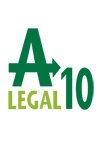Best Sexual Harassment Lawyers in Bree
Share your needs with us, get contacted by law firms.
Free. Takes 2 min.
List of the best lawyers in Bree, Belgium
About Sexual Harassment Law in Bree, Belgium
Sexual harassment in Bree, Belgium is addressed under both criminal law and employment and anti-discrimination rules. The law recognizes unwanted sexual conduct - verbal, non-verbal or physical - that affects a person dignity or creates an intimidating, hostile, degrading, humiliating or offensive environment. Victims have several routes to seek help and redress: criminal complaints, civil claims for damages, and workplace procedures or complaints to public authorities that oversee labour conditions and equal treatment. Local police and victim support services in Limburg can assist people in Bree who want to report incidents or get practical support.
Why You May Need a Lawyer
Legal advice can matter in many sexual harassment situations. A lawyer can help you understand your rights, explain criminal and civil options, and build a strategy that fits your goals - whether that is a criminal report, compensation, workplace remedies, or keeping distance from the harasser. Lawyers also help preserve evidence, communicate with employers or public authorities, and protect your confidentiality. Common situations that often require legal help include -
- Workplace harassment where the employer fails to act or where disciplinary or dismissal consequences are at stake.
- Harassment by a colleague, manager, client, or contractor where you need interim protective measures or formal complaints.
- Repeated harassment outside work - for example at school, in a housing context, or in public - that may require a criminal complaint.
- Cases with insufficient or contested evidence where legal strategy and witness preparation are important.
- When you seek financial compensation for emotional harm, medical costs or loss of earnings.
- When you face retaliation, dismissal, or adverse treatment after reporting the harassment.
Local Laws Overview
Key legal frameworks you should know about in Bree and across Belgium include -
- Criminal law - Certain forms of sexual harassment and sexual assault are criminal offences. Victims can file a complaint with the police, who may open an investigation and forward the case to the public prosecutor.
- Employment law and workplace safety - Belgian legislation and regulations on well-being at work require employers to prevent psychosocial risks, including sexual harassment. Employers must put in place prevention policies, complaint procedures and take immediate measures to protect victims.
- Anti-discrimination and equal treatment rules - Laws that aim to prevent discrimination and harassment on grounds such as sex or gender include provisions that can be used when harassment has discriminatory elements.
- Civil law - Victims can pursue a civil claim for damages against the harasser and, in some cases, against an employer if it failed in its duty to prevent or stop harassment.
- Administrative and sectoral remedies - In workplace matters you may also use internal grievance procedures, trade unions, inspection services and, when relevant, sectoral oversight bodies in Flanders or federal services that monitor labour conditions.
Procedures, time limits and available remedies depend on the seriousness of the conduct, whether it happened at work, and whether you choose criminal, civil or administrative routes. It is generally best to act promptly, because evidence and witness recollection can fade and statutory time limits may apply.
Frequently Asked Questions
What counts as sexual harassment under Belgian law?
Sexual harassment covers unwanted behaviour of a sexual nature - comments, propositions, gestures, touching, sharing sexual images or sexually explicit messages - that offends, humiliates or creates an intimidating or hostile environment. Context and frequency matter - a single serious act can be harassment, and repeated lower-level incidents can create a hostile environment.
Should I report sexual harassment to the police or to my employer first?
Both options are available and not mutually exclusive. If you are at immediate risk, contact the police first. For workplace incidents you should also follow your employer's internal complaint procedure. Reporting to the employer can trigger prevention and protection measures. Filing a criminal complaint starts an official investigation and can lead to prosecution.
What kind of evidence should I collect?
Keep records of dates, times, places and descriptions of incidents, names of witnesses, copies of messages, emails, photos, screenshots and any medical reports. Preserve physical evidence and avoid altering items that could be relevant. A lawyer or victim support service can advise on preserving evidence without putting yourself at risk.
Can my employer discipline or dismiss the harasser?
Yes. Employers have a duty to act. They can take disciplinary measures against an employee who sexually harasses another, up to dismissal where justified. Employers must also take steps to protect victims and prevent recurrence. If the employer fails to act, you may have grounds for a civil claim or a complaint to labour inspection authorities.
Will reporting lead to retaliation against me?
Retaliation is prohibited. If you suffer adverse treatment after reporting - for example demotion, dismissal or isolation - you may have separate legal claims. Keep records of any retaliatory acts and discuss immediate protective steps with a lawyer or trade union representative.
Can I ask for immediate protective measures?
Yes. In criminal cases police or a prosecutor can request measures such as no-contact orders or temporary protective measures. In the workplace you can ask the employer for interim measures - for example change of schedule, relocation, or temporary leave - while the complaint is investigated.
What compensation can I obtain?
Victims can seek compensation for material and moral damages - for example medical costs, therapy, lost wages and emotional harm. The amount depends on the circumstances, severity, and impact on the victim. Compensation can be sought through civil proceedings or, in some cases, as part of criminal proceedings.
How long do I have to report an incident?
Time limits depend on the legal route and the severity of the conduct. Criminal limitation periods vary by offence and can be complex. Civil claims also have limitation periods. Because deadlines differ by case, you should consult a lawyer promptly to avoid losing the right to bring a claim.
Can I remain anonymous when reporting?
Complete anonymity is not always possible because investigations and employer procedures typically require identification. However, victim support services, trade unions and confidential counsellors can assist you before any formal report. Prosecutors and employers must respect privacy and confidentiality as far as possible.
Is legal aid available if I cannot afford a lawyer?
Yes - Belgium provides legal aid for people with limited means. Eligibility depends on income and the nature of the case. There are also victim support services that provide free initial guidance and psychological support. Ask the local bar association or a victim support organisation about pro bono or subsidised assistance.
Additional Resources
Below are types of local organisations and public bodies that can help someone in Bree -
- Local police station - for immediate emergencies and to file criminal complaints.
- Victim support organisations - including regional victim assistance services that offer emotional support, practical help and orientation to legal options.
- Centres for sexual assault and medical-forensic centres - for medical care and forensic evidence collection if an assault has occurred.
- Trade unions and works council representatives - they can support workplace complaints and collective procedures.
- Regional public services responsible for employment, labour inspection and workplace safety - they oversee employer obligations on wellbeing at work.
- Equal opportunity bodies and anti-discrimination agencies - they handle complaints with a discriminatory element and can advise on remedies.
- Local legal aid offices and the bar association - for information about legal aid and referrals to specialised lawyers.
Next Steps
If you are facing sexual harassment in Bree, consider the following practical steps -
- Prioritise safety. If you are in danger, call the police immediately and seek a safe place.
- Document the incidents. Keep detailed notes, save messages and collect any available evidence as soon as you can.
- Seek medical care if you were physically harmed or if you may need a forensic examination. Medical records can also be important evidence.
- Contact a victim support organisation for emotional support, practical advice and help understanding options.
- Follow workplace complaint procedures while also considering a criminal report if appropriate. Notify your employer if it is safe to do so.
- Speak with a lawyer who specialises in sexual harassment or employment law to review your options, explain time limits and possible outcomes, and to help preserve evidence and request interim measures.
- Ask about legal aid or pro bono services if cost is a concern, and consider trade union assistance where relevant.
Getting help early improves your chances of a positive outcome. A lawyer and local support services can guide you through reporting, protection and possible compensation - preserving your rights while protecting your wellbeing.
Lawzana helps you find the best lawyers and law firms in Bree through a curated and pre-screened list of qualified legal professionals. Our platform offers rankings and detailed profiles of attorneys and law firms, allowing you to compare based on practice areas, including Sexual Harassment, experience, and client feedback.
Each profile includes a description of the firm's areas of practice, client reviews, team members and partners, year of establishment, spoken languages, office locations, contact information, social media presence, and any published articles or resources. Most firms on our platform speak English and are experienced in both local and international legal matters.
Get a quote from top-rated law firms in Bree, Belgium — quickly, securely, and without unnecessary hassle.
Disclaimer:
The information provided on this page is for general informational purposes only and does not constitute legal advice. While we strive to ensure the accuracy and relevance of the content, legal information may change over time, and interpretations of the law can vary. You should always consult with a qualified legal professional for advice specific to your situation.
We disclaim all liability for actions taken or not taken based on the content of this page. If you believe any information is incorrect or outdated, please contact us, and we will review and update it where appropriate.









